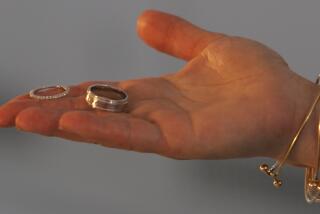Lawyer-Client Sex Ethics Rule Blocked by Court
- Share via
SAN FRANCISCO — The state Supreme Court has blocked implementation of a landmark ethics rule restricting sex between lawyers and their clients.
The justices, in a letter released Tuesday, directed the State Bar Board of Governors to obtain additional comment from attorneys and the public on the controversial proposal--in particular a key provision requiring lawyers to prove that a sexual relationship with a client did not harm the client’s case.
That section of the rule--known to some foes as the “guilty until proven innocent” provision--was added by Bar leaders in a last-minute compromise with state Assemblywoman Lucille Roybal-Allard (D-Los Angeles), the author of legislation that ordered the Bar to formulate ethical restrictions on lawyer-client sex.
The assemblywoman had initially proposed a virtual ban on such relationships, but accepted the Bar’s counterproposal, placing the burden of proof on the lawyer, instead of the client, in any disciplinary proceedings.
Roybal-Allard said Tuesday she was disappointed with the court’s action and expressed hope that the justices--who have final approval on such rules--were not signaling that they intend to reject the measure.
“The language of the rule (placing the burden of proof on lawyers) was adopted in order to provide essential consumer protection and provide a strong disincentive to attorneys to engage in sexual misconduct,” she said. “I hope the delay will be a short one and we can move forward as quickly as possible.”
She said that while the rule is being reviewed, she would not promote stronger pending legislation that would prohibit any sexual contact between lawyers and clients, with very limited exceptions.
State Bar President Charles S. Vogel of Los Angeles said the high court evidently has “some concern” about placing the burden of proof on a lawyer, rather than on the accuser, when it could mean the loss of the right to practice law. But he noted the court apparently had not yet concluded that the rule was unconstitutional.
Vogel predicted that the court’s action would renew wide-ranging debate in legal circles, and said it was possible the Board of Governors could revise its position on the issue.
“There is a contingent of lawyers and others who believe any rule like this is overly restrictive on freedom of association, but there are equally large numbers who believe this rule is appropriate,” he said.
The rule, adopted last April by the board, prohibits lawyers from coercing or demanding sex from clients. The regulation also says that an attorney who engages in sex with a client cannot continue as counsel if the relationship prevents the lawyer from competently representing the client. A further provision--the one the court cited Tuesday in its letter--says that if any disciplinary charges are brought, it is up to the lawyer to prove the relationship did not harm the client’s case.
In its letter, the high court instructed Bar leaders to seek additional comment on the lawyer-sex rule for 90 days. The court noted that the provision placing the burden of proof on the lawyer had been added after the rule had been publicly circulated in a different form.
If eventually adopted by the high court, the rule would be binding on the state’s 128,000 licensed attorneys. Violation of the rule could result in a reprimand, suspension or disbarment.
The high court action further delays the resolution of a dispute that already has resulted in months of controversy over whether the regulation might violate the right to privacy and free association.
More to Read
Get the L.A. Times Politics newsletter
Deeply reported insights into legislation, politics and policy from Sacramento, Washington and beyond. In your inbox twice per week.
You may occasionally receive promotional content from the Los Angeles Times.










